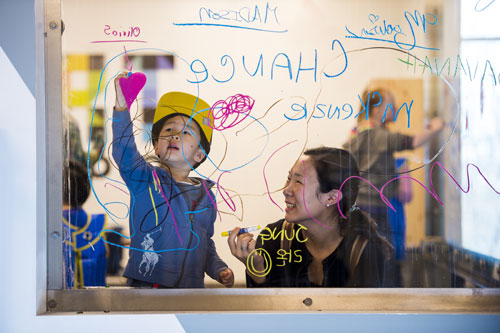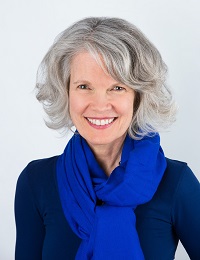Blog Posts | May 30, 2018
Share This
Dr. Kathryn K. Matthew
The following is adapted from remarks delivered to the American Alliance of Museums on April 5, 2018, in Phoenix, Arizona.
I want to reflect on IMLS's new strategic plan, Transforming Communities, and what it means for the agency. I hope you will consider what it means for each of your museums as well.
Strategic planning can be complicated, messy, tedious, uncomfortable, stressful, and sometimes exhilarating. In drafting a new strategic plan, IMLS drew on the knowledge of staff, board members, and stakeholders to look to the future. While many of the words in the IMLS strategic plan look familiar, they are focused on driving the agency, and museums, toward continual learning and adaptation.
Throughout the planning process, I kept coming back to the idea that we, as an agency, hold knowledge assets, as well as financial resources, in the public trust. Of course, we need to continue to earn that trust by being a wise steward of public funds. But in addition, we need to be wise stewards of our collective knowledge assets—especially the lessons from our grantmaking, conferences and meetings, and current practices and emerging trends in the museum profession. Those assets are essential for those of us who care deeply about museums.
As trusted sources of information and collective knowledge, museums are creating mutual value with their communities. This concept of mutual value can include shared heritages, lifelong learning, literacies, family cohesion, health, or however you define “value” and “community” within your orbit, locally to nationally. Creating mutual value with our communities is constant and important for all types of museums, whether public-focused or academic-focused institutions.
How do we approach creating mutual value?
- Recognize that museums exist as nodes within social and knowledge networks that they connect, amplify, and strengthen;
- Reframe our work to an attitude of “contribution,” not “attribution”—adopting the philosophy of collective impact in all its flavors—to improve community wellbeing;
- Leverage the role that museums serve as trusted sources of information throughout people's lives, across various literacies such as financial, health, science, and the arts;
- Focus on partnerships, not “expert-ships,” whereby we embrace others' knowledge, skills, and relationships in our communities and in other sectors;
- Define ways to demonstrate impact including measures of progress; and
- Innovate through the entire lifecycle of programs and operations, which includes piloting, figuring out when to scale, evaluating outcomes and processes, taking calculated risks, and seeking opportunities.
This shift towards creating mutual value with our communities is constant and important for all types of museums, whether public-focused or academic-focused institutions. It requires not only recalibrating our institutional cultures and business priorities, but educating our boards, donors, and stakeholders. We must invite them along this transformative journey with us.
I believe this shift is important because we are returning to the notion of the museum as a civic commons, a public space. Within our communities, we are reaching beyond walls—whether physical, intellectual, or emotional. We need to take the time to listen, expect the unexpected, and hear new stories, because communities become the stories they tell together about themselves.

About the Author
Dr. Kathryn K. Matthew was confirmed by the Senate in September 2015 as the 5th director of the Institute of Museum and Library Services.
